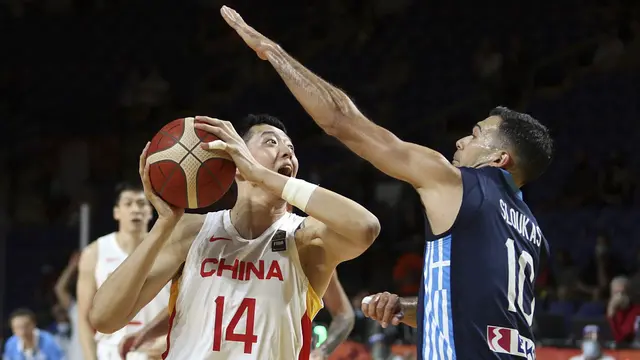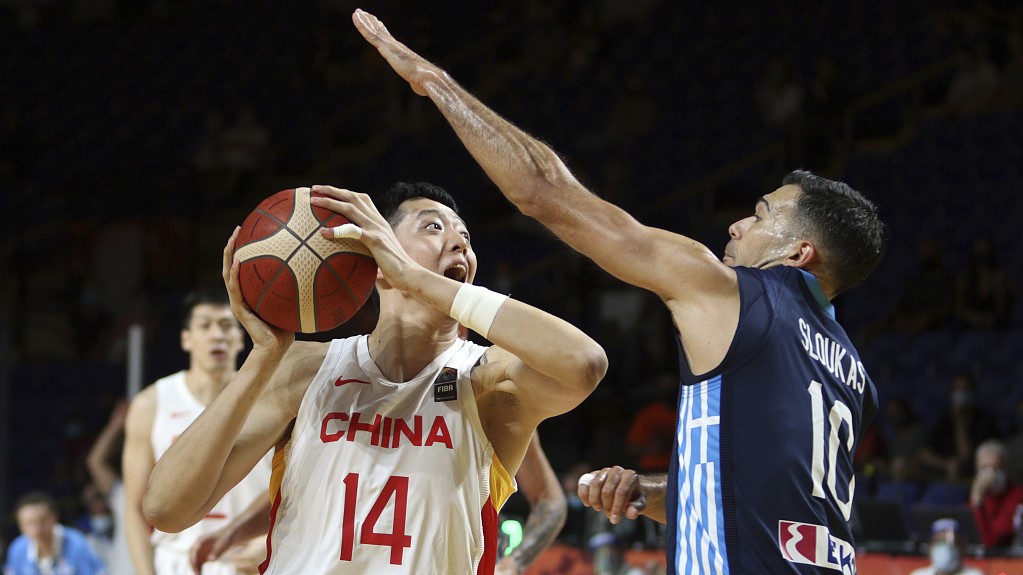
Shen Zijie (#14) of China drives in the FIBA Olympic qualification tournament game against Greece in Victoria, British Columbia, Canada, July 1, 2021. /CFP
China's national men's basketball team officially said goodbye to the Tokyo Olympics after losing to both Canada and Greece in the Olympic qualification tournament in Victoria, Canada this week.
The result should not come as any surprise. Canada recruited eight NBA players for the tournament and were playing at home. Greece, though without their ace Giannis Antetokounmpo, they are No. 6 team on FIBA's world rankings table and have first-class team work.
In fact, the moment China failed to acquire an early Olympic spot in the FIBA Basketball World Cup at home in 2019, Tokyo was already too far to reach.
However, it still hurt Chinese fans to watch their national team lose by a total of 55 points in two games.

Hu Mingxuan (#8) of China tries to penetrate in the FIBA Olympic qualification tournament game against Greece in Victoria, July 1, 2021. /CFP
It's true that China did not send all of their best players to Canada as Yi Jianlian, Guo Ailun and Wang Zhelin are dealing with health issues. But to be honest, there wasn't much they could contribute to the team judging by their condition and playstyle. Yi Jianlian is 35 years old and suffered an Achilles tendon rupture. Guo Ailun has never been a qualified playmaker for international competitions; Wang Zhelin's posting up in the low block does not fit in with today's basketball, nor does he show any dominance in the paint.
Nonetheless, if you take a look at what happened in Canada, you will understand why some fans hold on to the unreasonable hope on the above three. Seven of the team's 12 players had zero experience of playing international games like these. Most Chinese players could not even handle the ball well when defenders grew a bit more physical, never mind changing the opponents' defense with individual attack. Meanwhile, Chinese shooters continued to miss open 3-pointers, giving the opponents more reasons to close in toward the paint. Unfortunately, China had no slasher able to charge the rim against such defense.
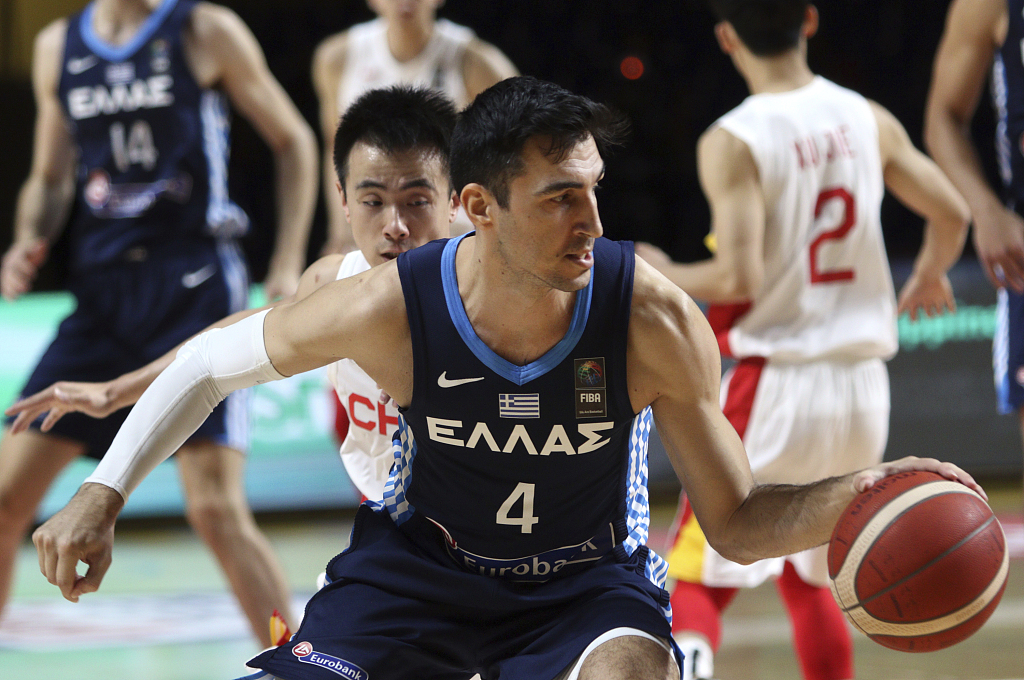
Dimitrios Katsivelis (#4) of Greece dribbles the ball in the FIBA Olympic qualification tournament game against China in Victoria, July 1, 2021. /CFP
On the other side of the court, Chinese players lacked the experience and skills to slow the opponents down. If the loss against Canada could still be ascribed to the huge difference in athleticism and other physical conditions, the loss to Greece should be attributed to lack of basic defensive understanding of modern basketball.
Chinese players could hardly limit their Greek counterparts in one-on-one defense and things grew even uglier in screen plays. Many Chinese players were slow in help defense and seemed lost covering their defensive targets off the ball. Greek big men dismembered China's defense with fast and accurate ball movement. Many of their shots inside the 3-point line were close enough to open.
It should be pointed out that Greek shooters were totally able to fire right in front of Chinese defenders from beyond, partly because China put three undersized guards on the floor for too long.
The above unpleasant moments in the games told one simple true story: Chinese men's basketball has been regressing.
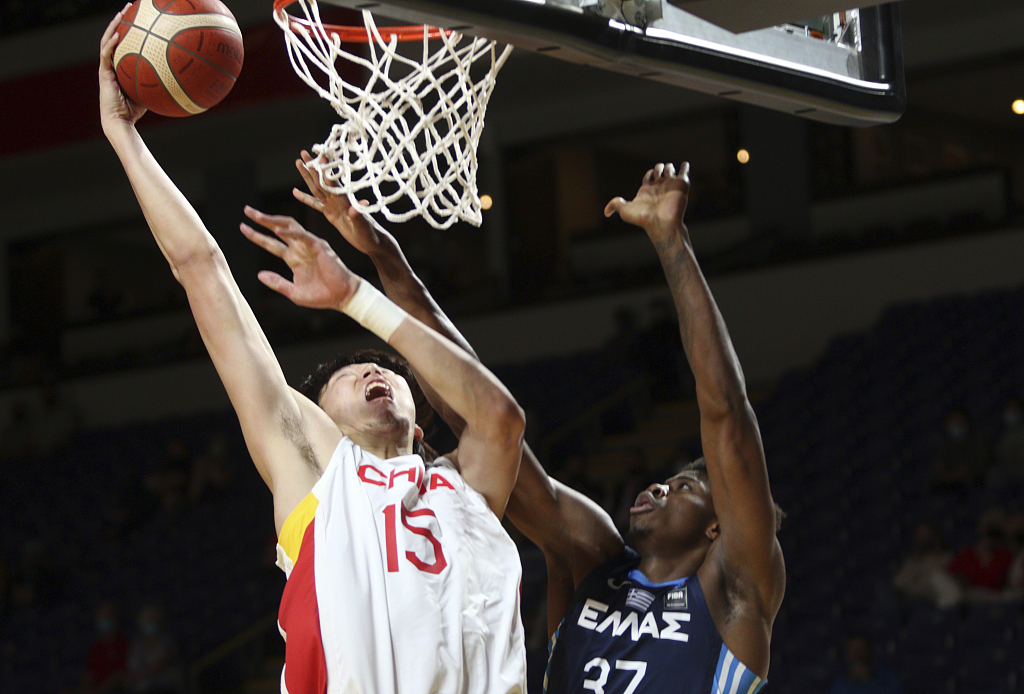
Zhou Qi (#15) of China dunks in the FIBA Olympic qualification tournament game against Greece in Victoria, July 1, 2021. /CFP
Unfortunately, things won't necessarily look better in the coming five to seven years. FIBA reformed the Olympic qualification format in 2015. Instead of beating other opponents in Asia, a team must be the best-performing Asian team in the World Cup to make the Olympics automatically. If that does not happen, the choice left is to compete for the very few Olympic berths with teams from other continents, which are very likely to be the traditional strong teams of Europe or Africa, which are filled with explosive athletes.
10 of this year's 16 teams left in the Olympic qualification tournaments are from Europe.
The next Basketball World Cup will happen in three nations – Japan, Indonesia and the Philippines – in 2023. That means the group separation may not be so pleasant for China, which could be in the same group with Italy, Croatia, Russia or even Serbia. That will further dim China's hope of pocketing an Olympic spot in the World Cup. Nonetheless, competitions in the following qualification tournament will be nothing but more intensive.
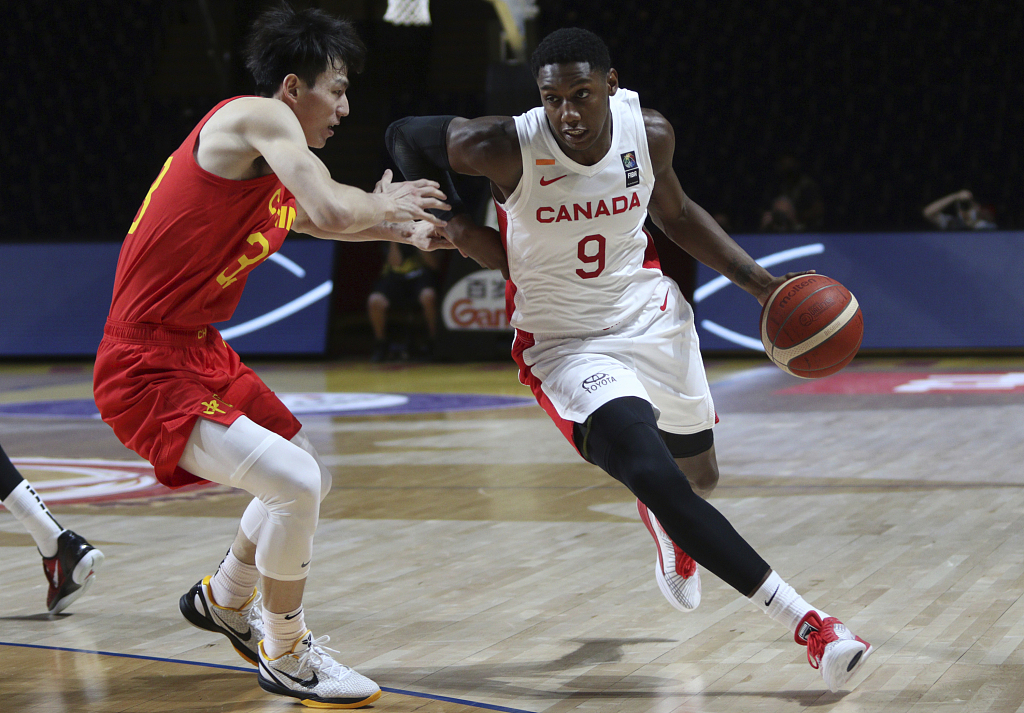
R.J. Barrett (#9) of Canada tries to penetrate in the FIBA Olympics qualificaton tournament game against China in Victoria, June 30, 2021. /CFP
When some Chinese basketball reporters and commentators said Chinese basketball was entering the darkest decade after the loss in the World Cup two years ago, they were not being pessimistic, but realistic.
Is there any solution? Of course there is but none of them are quick. Neither should they be.
For example, Chinese basketball needs a deeper talent pool than youth development of the CBA teams. College basketball may be one of the best sources but as long as professional sport development is not part of the physical aspect of the country's education system, even junior schools, senior schools and colleges will have a problem filling their rosters with enough talented players.
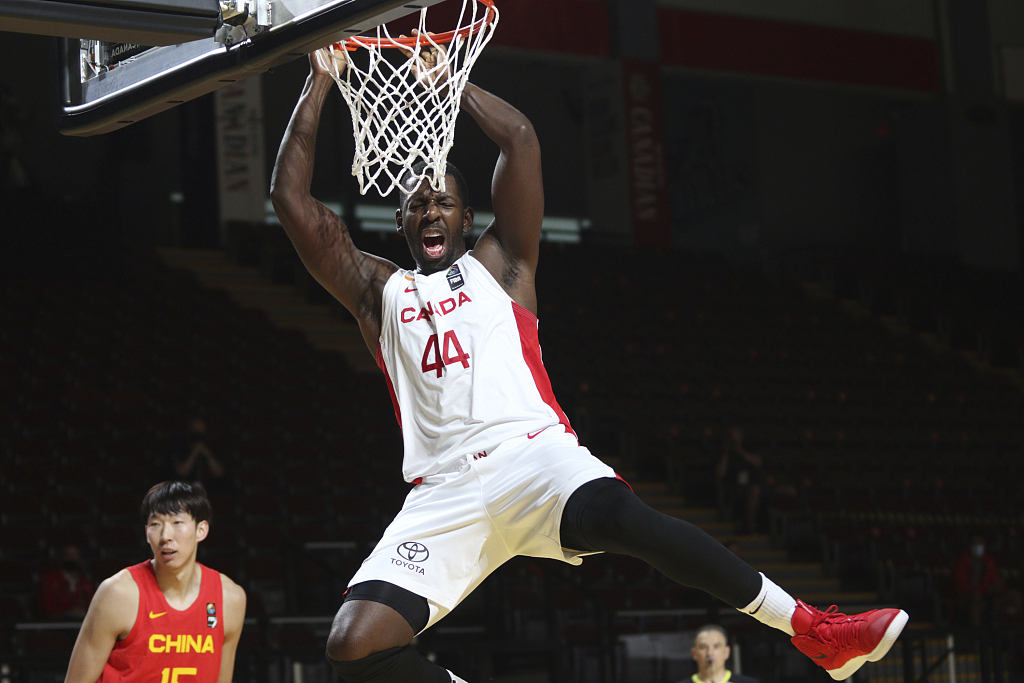
Andrew Nicholson (#44) of Canada dunks in the FIBA Olympics qualificaton tournament game against China in Victoria, June 30, 2021. /CFP
On the CBA level, shutting the door to foreign players is never the solution. On the contrary, allowing home-grown youngsters to be indulged in the satisfaction of beating domestic counterparts in a sealed off league won't help it grow. Instead, the frustration will only be much more painful when they encounter it in international competitions.
On the national team level, taking the national squad to the NBA Summer League every year is not as helpful as it seems because it's not Team USA who China must beat. European teams who have more reasonable playbooks and attach more importance to team work are better examples for China to learn from. They are the opponents China must beat in the World Cup and on the way to Olympics.
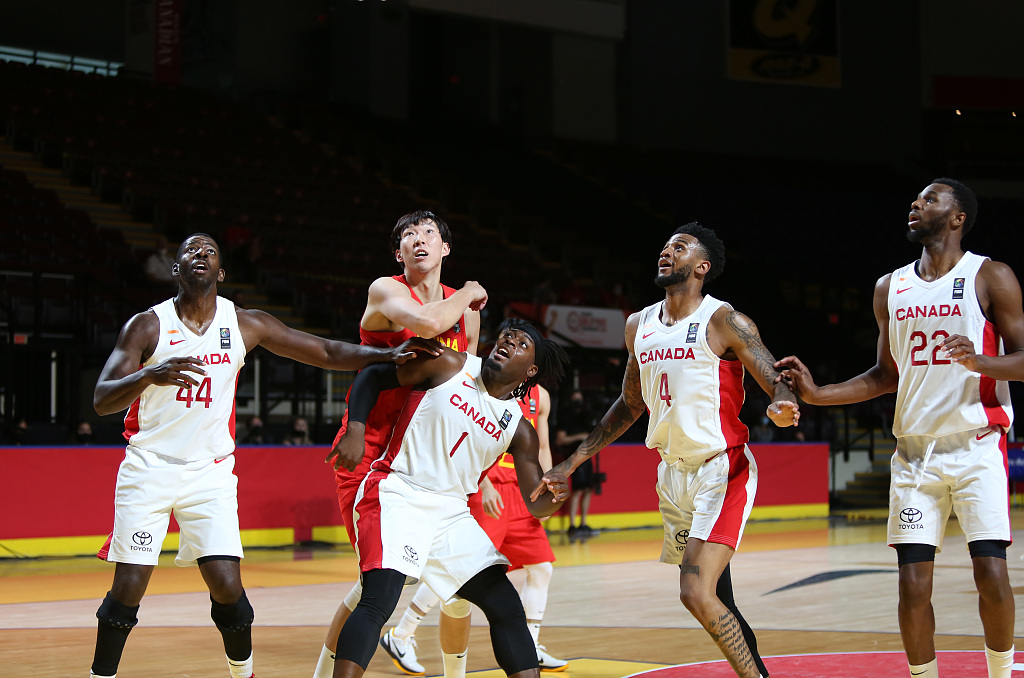
Zhou Qi of China tussles with Luguentz Dort (#1) of Canada in the FIBA Olympics qualificaton tournament game in Victoria, June 30, 2021. /CFP
Naturalizing players is a taboo to many Chinese basketball fans but the truth is, it works. The Chinese men's national football team advancing in the World Cup qualifiers is the closest example to their basketball counterpart. Moreover, numerous basketball talents from Africa have been recruited by countries all over the world year after year. Some of the African countries already realized that and began to intercept such outflow. It's only a matter of time for more strong teams from Africa rise to the international stage.
None of the above ideas can be realized without generations of effort. But neither are they a house of cards. It takes patience, persistence and true strong determination to work them out.
 简体中文
简体中文

